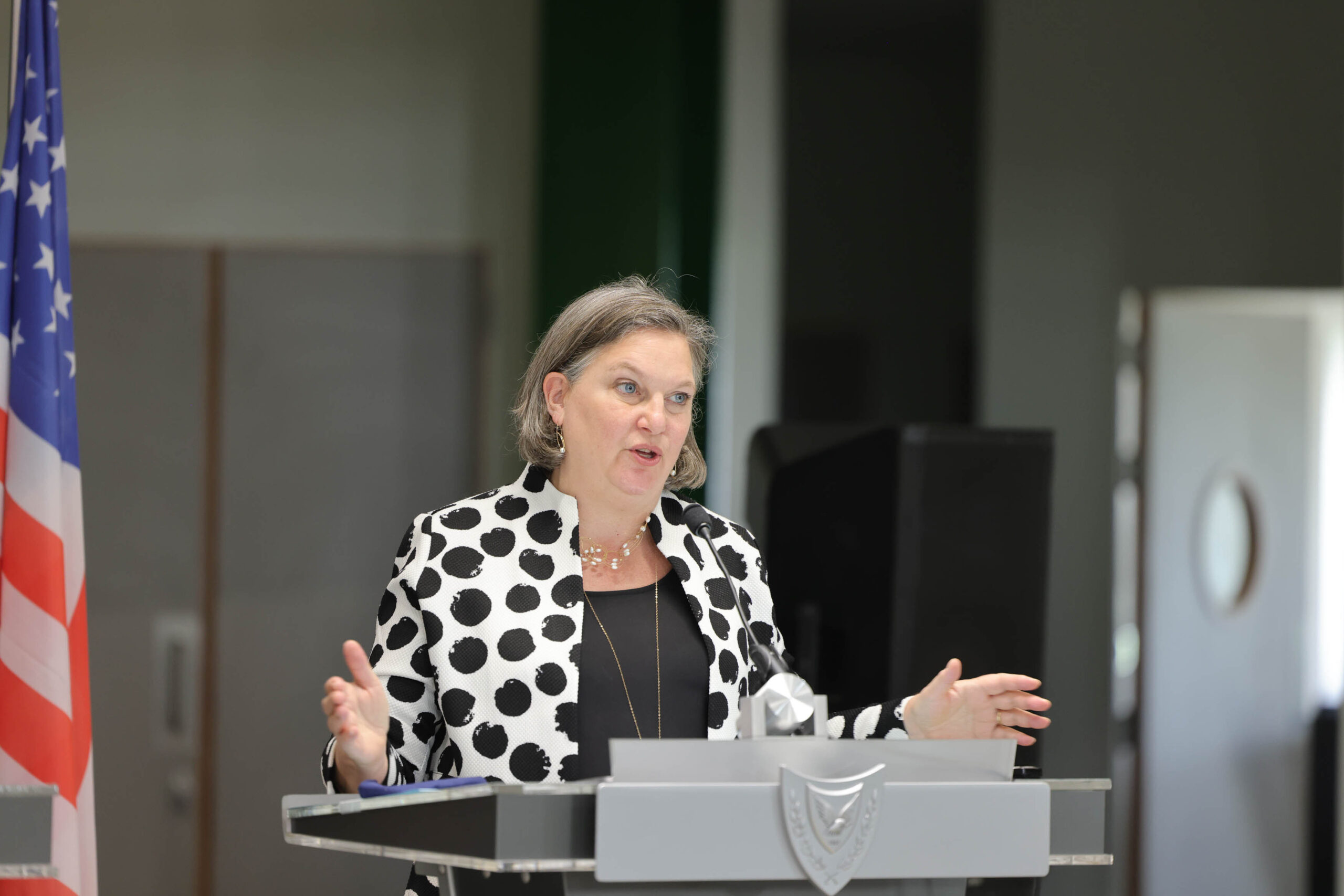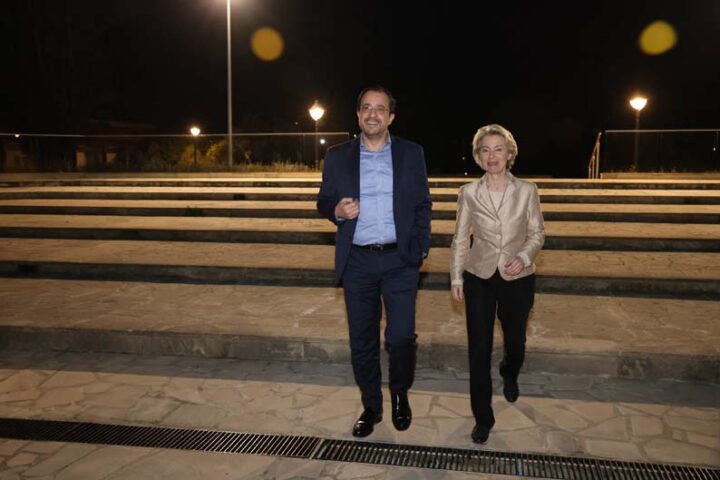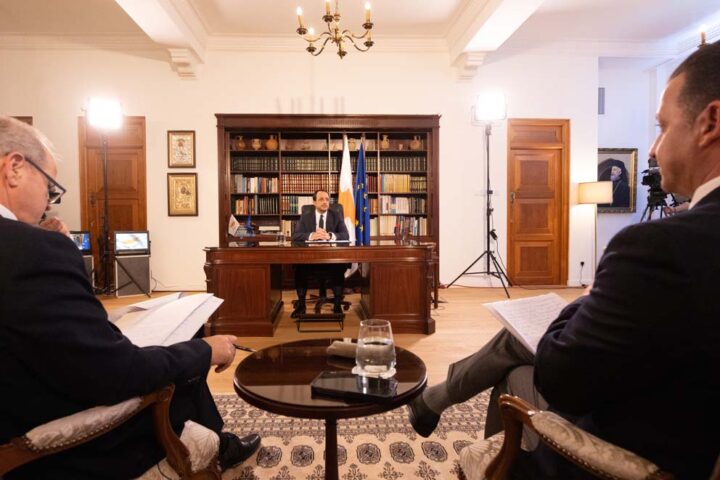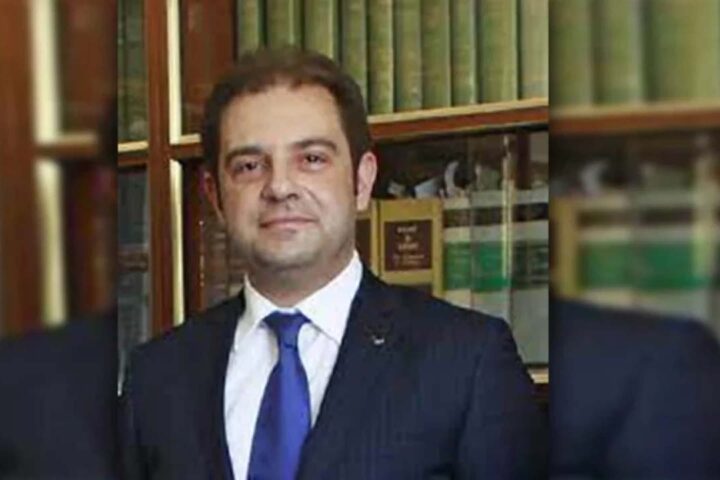If anybody wants to measure how far the Cyprus problem has fallen off the political map during the war in Europe and economic crisis, this is the perfect time to do it.
The island’s deepening division only resurfaces if Turkey decides to do something belligerent like open Varosha, send warships into Cyprus waters or wheel out another form of partition.
Russia’s invasion of Ukraine has highlighted how far stuck behind the Iron Curtain as a bygone relic the island’s occupation has become.
Cypriots have suffered war crimes at the hands of the invader, seen a third of its population made refugees and buried loved ones.
It is why Cyprus has contributed more humanitarian aid to Ukraine than it has to any other country.
Cyprus still wears the scars of war, unable to mend after 48 years, the fate of hundreds still unknown and politicians unable to fix the mess.
Foreign troops remain on Cyprus soil, Greek and Turkish Cypriots distrustful of each other where blame is easier than remedy.
This is our legacy since 1974, the hope of reunification weakens by the day, but the government believes its energy diplomacy and pro-US détente will secure the future.
But there are times when Nicosia must acknowledge its place in a world where geopolitics has no friends or principles.
It’s a harsh game of survival, self-interest and knowing how to lose to achieve the bigger win at a time of your choosing.
Most Cypriots know the Cyprus problem is on a life-support machine, and no donor is willing to give up an organ to a lost cause when there are others worth saving.
We have become important to the US and its allies, and that comes with a price, like turning your back on Russia and realising Turkey also has skin in the game.
Despite its shiny new friends, there was an embarrassing moment when visiting US undersecretary of state Victoria Nuland referred to the Turkish Cypriot leader as ‘President’ Tatar.
Ironically, the faux par was said to reporters at the Presidential Palace after she met Cyprus President Nicos Anastasiades and before meeting Tatar.
After acknowledging her error, Nuland said: “I guess it was a mistake, right?
“What do I call him? Mr Tatar, yes, I apologise; it’s been a long time since I’ve been in Cyprus; we obviously refer to him as Mr Tatar.”
Maybe a slip of the tongue and nothing more sinister but language is a nuclear weapon in Cyprus Politik.
Tatar was quick to argue that Nuland’s reference showed a tacit acceptance of the breakaway state, whether a mistake or not.
Zelensky factor
Seething from a hiccup in diplomatic protocol, Anastasiades hoped to bask in the rays of the international spotlight when Ukraine President Volodymyr Zelensky addressed the Cypriot parliament.
Surely, Zelensky – grateful for Cyprus’ stance against Russia – would acknowledge that Cypriots were also victims of a bloodthirsty aggressor in Turkey.
There was “bitter disappointment” that Zelensky did not condemn the Turkish invasion and rolled off a list of demands for Nicosia to heed.
He urged the government to revoke the “privileged golden passports” given to wealthy Russians and ban all ships, including luxury yachts.
Zelensky told parliament what he needed to say and screened a short video of the atrocities suffered by Ukraine at the hands of Russia.
Unlike in other countries, there was no applause or a standing ovation; the atmosphere was as if the MPs had been sent to the headmaster’s office for misbehaving.
It was a PR disaster for many Cypriot politicians, and space might freeze over before Zelensky gets another invitation to speak.
Although Cyprus equates its plight with Ukraine’s, was Zelensky really expected to have a dig at Turkey when his entire focus is repelling the Russian invader.
Did a furious Anastasiades naively believe that Zelensky would make an enemy of Turkey when he needed all the friends he could get?
Ukraine’s president was playing the same propaganda war that Cyprus is useless at, and Russia is a grandmaster while Turkey is no amateur.
Quickly condemning a man for not mentioning the 1974 Turkish invasion when his country was at war and fighting for its very survival seemed crass.
We should be helping Ukraine because it is the right thing to do morally. After all, bullies and tyrants should be stopped.










